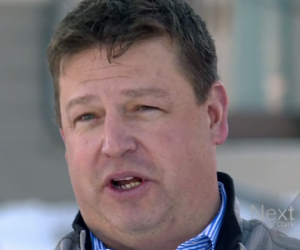
DEMOCRATS
REPUBLICANS
95%
5%

(D) J. Hickenlooper*
(R) Somebody
80%
20%


(D) M. Dougherty
(D) Brian Mason
60%↑
20%↓


(D) Brianna Titone
(R) Kevin Grantham
(D) Jerry DiTullio
60%↑
30%
20%↓

(D) Diana DeGette*
(R) Somebody
90%
2%

(D) Joe Neguse*
(R) Somebody
90%
2%

(R) Jeff Hurd*
(D) Somebody
80%
40%

(R) Lauren Boebert*
(D) Somebody
90%
10%

(R) Jeff Crank*
(D) Somebody
80%
20%

(D) Jason Crow*
(R) Somebody
90%
10%

(D) B. Pettersen*
(R) Somebody
90%
10%

(R) Gabe Evans*
(D) Manny Rutinel
(D) Yadira Caraveo
45%↓
40%↑
30%

DEMOCRATS
REPUBLICANS
80%
20%

DEMOCRATS
REPUBLICANS
95%
5%

(D) J. Hickenlooper*
(R) Somebody
80%
20%


(D) M. Dougherty
(D) Brian Mason
60%↑
20%↓


(D) Brianna Titone
(R) Kevin Grantham
(D) Jerry DiTullio
60%↑
30%
20%↓

(D) Diana DeGette*
(R) Somebody
90%
2%

(D) Joe Neguse*
(R) Somebody
90%
2%

(R) Jeff Hurd*
(D) Somebody
80%
40%

(R) Lauren Boebert*
(D) Somebody
90%
10%

(R) Jeff Crank*
(D) Somebody
80%
20%

(D) Jason Crow*
(R) Somebody
90%
10%

(D) B. Pettersen*
(R) Somebody
90%
10%

(R) Gabe Evans*
(D) Manny Rutinel
(D) Yadira Caraveo
45%↓
40%↑
30%

DEMOCRATS
REPUBLICANS
80%
20%

DEMOCRATS
REPUBLICANS
95%
5%
 March 12, 2020 10:57 AM UTC
March 12, 2020 10:57 AM UTC 3 Comments
3 Comments
What are the 5 that are left?
Andrew Romanoff is dying to know!
This is a bit of what is good for the goose is good for the gander (or more specifically bad for each). Let’s remember what happened in the Gessler case. The IEC repeatedly refused to tell Gessler what specific sections he violated before “convicting” him and the Colorado judicial system basically said that was ok.
Given that backdrop of permissible lack of due process, what is problematic with a fishing expedition into Hickenlooper?
Now to be clear, I think there are major reforms of ethics complaints that need to happen for everybody. But those that cheered on on this shenanigans when the GOP was targeted don’t really have moral standing to decry now that it targets Dems.